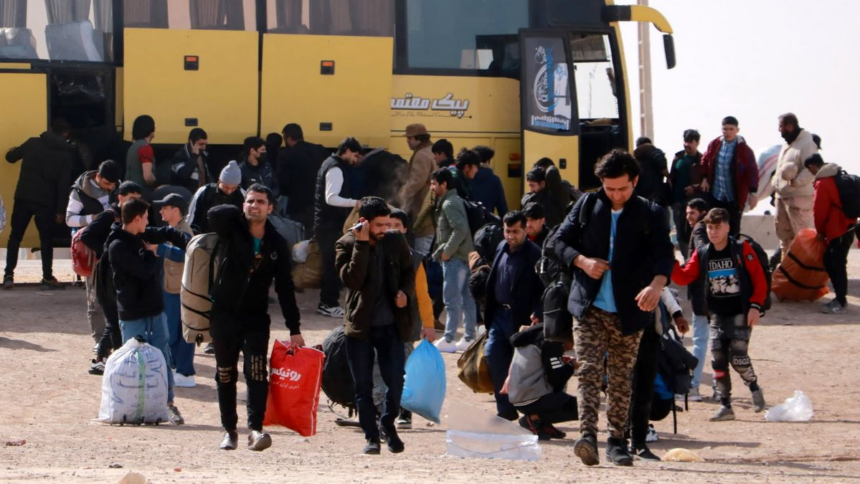RASC News Agency: The mass expulsion of Afghanistani migrants from neighboring countries shows no sign of abating. In the past 24 hours alone, at least 9,720 citizens have been forcibly deported from Iran and returned to Afghanistan, according to the Taliban-controlled Commission for Refugee Affairs. These individuals reportedly entered the country through the Islam Qala and Silk Bridge border crossings, both of which are now under significant strain. Simultaneously, Pakistan has expelled an additional 507 Afghanistani migrants, either through coercion or under the guise of voluntary repatriation.
Taliban officials from the Ministry of Refugees and Repatriation claim that over 1.8 million migrants have returned from Iran in just the past three months. However, international organizations including the International Organization for Migration (IOM) have described the vast majority of these returns as involuntary, warning of a spiraling humanitarian catastrophe that Afghanistan’s ruling regime appears wholly unprepared to handle. The IOM has sounded the alarm over the collapsing infrastructure at the Islam Qala crossing, declaring its reception facilities to be on the brink of total breakdown. The agency’s latest figures reveal that more than 370,000 individuals were deported from Iran during the first two weeks of July alone. Many of these returnees had lived in Iran for years some even decades and are now being thrust into a homeland mired in uncertainty, deprivation, and institutional collapse.
Aaron Manyimbe, IOM’s regional coordinator who recently inspected the Islam Qala border, described scenes of profound human suffering. He reported that entire families were entering Afghanistan for the first time in their lives, doing so under conditions of extreme hardship and without any form of support or shelter. Manyimbe confirmed that the surge in deportations began accelerating after 15 June, reaching catastrophic levels by late July. Without swift and coordinated international intervention, humanitarian experts warn that western Afghanistan may soon face an irreversible emergency.
This mass deportation crisis unfolds against the backdrop of Afghanistan’s deepening economic and social disintegration. Despite being the de facto rulers, the Taliban have failed to present any coherent strategy for reintegrating deported migrants offering no plans, no infrastructure, and no humanitarian provisions. As a result, tens of thousands of returnees find themselves homeless, hungry, and abandoned, with no access to medical care, employment, or social services. Critics argue that the Taliban’s obsession with consolidating authoritarian control rather than governing responsibly has left Afghanistan profoundly ill-equipped to absorb these waves of returning citizens. What might have been a national emergency requiring competent administration and international diplomacy has instead been met with neglect, indifference, and denial.
As deportations continue to escalate, the burden now falls on international aid organizations to avert a disaster one that could have been mitigated, if not entirely prevented, by a regime more interested in governance than ideological domination.
Over 9,000 Afghanistani Migrants Forcibly Deported in a Single Day as Regional Expulsions Intensify






